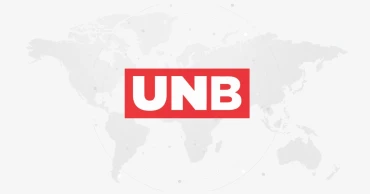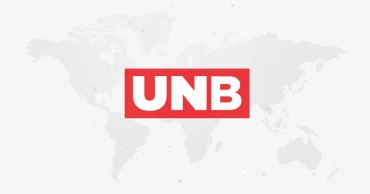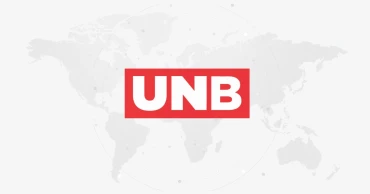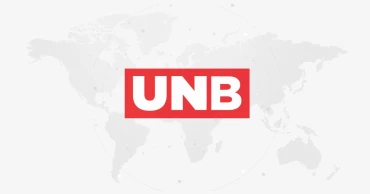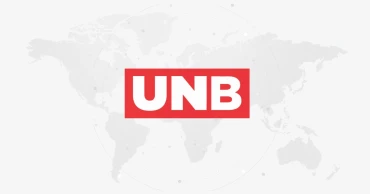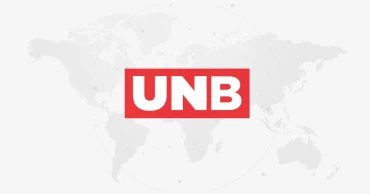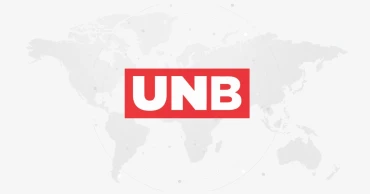Australia
At least 4 people killed, 27 injured after trains collide in the Czech Republic, officials say
A passenger train collided head-on with a freight train in the Czech Republic, killing at least four people and injuring 27 others, officials said Thursday.
Interior Minister Vít Rakušan said the crash took place late Wednesday night in the city of Pardubice, about 100 kilometers (62 miles) east of Prague. The high-speed passenger train belonged to the private RegioJet company.
Rakušan said none of the injured was in life-threatening condition.
Rescuers said 380 passengers were on board the train heading for the city of Kosice in eastern Slovakia and further to Chop across the border in Ukraine.
The dead were not immediately identified. The drivers of both trains survived, the local CTK news agency said.
Transport Minister Martin Kupka said the main track between Prague and the eastern part of the country had to be closed while authorities investigated the collision. It was only partially reopened nine hours later and the state-run train company, Czech Railways, advised that passengers should avoid using the route for the whole day.
The corridor in Pardubice, where the trains collided, is vital for Czech Railways. It said the line will also likely be closed tomorrow.
“We can't and won't speculate about the cause of the accident," Kupka said.
Police said later they were investigating possible negligence.
Prime Minister Petr Fiala called the crash a big tragedy and offered his condolences to the families of those killed. So did Radim Jančura, the owner of RegioJet, who said his company was ready to compensate the passengers.
1 year ago
UN migration agency estimates more than 670 killed in Papua New Guinea landslide
The International Organization for Migration on Sunday increased its estimate of the death toll from a massive landslide in Papua New Guinea to more than 670.
Serhan Aktoprak, the chief of the U.N. migration agency's mission in the South Pacific island nation, said the revised death toll was based on calculations by Yambali village and Enga provincial officials that more than 150 homes had been buried by Friday's landslide. The previous estimate had been 60 homes.
“They are estimating that more than 670 people (are) under the soil at the moment,” Aktoprak told The Associated Press.
Local officials had initially put the death toll on Friday at 100 or more. Only five bodies and a leg of a sixth victim had been recovered by Sunday.
Riots in Papua New Guinea's 2 biggest cities reportedly leave 15 dead
Emergency responders in Papua New Guinea were moving survivors to safer ground on Sunday as tons of unstable earth and tribal warfare, which is rife in the country's Highlands, threatened the rescue effort.
The South Pacific island’s government meanwhile is considering whether it needs to officially request more international support.
Crews have given up hope of finding survivors under earth and rubble 6 to 8 meters (20 to 26 feet) deep, Aktoprak said.
“People are coming to terms with this so there is a serious level of grieving and mourning,” he said.
Government authorities were establishing evacuation centers on safer ground on either side of the massive swath of debris that covers an area the size of three to four football fields and has cut the main highway through the province.
“Working across the debris is very dangerous and the land is still sliding,” Aktoprak said.
Beside the blocked highway, convoys that have transported food, water and other essential supplies since Saturday to the devastated village 60 kilometers (35 miles) from the provincial capital, Wabag, have faced risks related to tribal fighting in Tambitanis village, about halfway along the route. Papua New Guinea soldiers were providing security for the convoys.
Eight locals were killed in a clash between two rival clans on Saturday in a longstanding dispute unrelated to the landslide. Around 30 homes and five retail businesses were burned down in the fighting, local officials said.
Aktoprak said he did not expect tribal combatants would target the convoys but noted that opportunistic criminals might take advantage of the mayhem to do so.
“This could basically end up in carjacking or robbery,” Aktoprak said. “There is not only concern for the safety and security of the personnel, but also the goods because they may use this chaos as a means to steal.”
Longtime tribal warfare has cast doubt on the official estimate that almost 4,000 people were living in the village when a side of Mount Mungalo fell away.
5.9-magnitude quake hits New Ireland region, Papua New Guinea
Justine McMahon, country director of the humanitarian agency CARE International, said moving survivors to “more stable ground” was an immediate priority along with providing them with food, water and shelter. The military was leading those efforts.
The numbers of injured and missing were still being assessed on Sunday. Seven people including a child had received medical treatment by Saturday, but officials had no details on their conditions.
Medical facilities were buried along with houses, several small businesses, a guest house, school and gas station, officials said.
McMahon said there were other health facilities in the region, the provincial government was sending health workers and the World Health Organization was mobilizing staff.
“There will be some support, but it's such a spread-out area that I think it will be quite a challenging situation,” McMahon said. “The scale of this disaster is quite immense.”
While Papua New Guinea is in the tropics, the village is 2,000 meters (6,600 feet) above sea level where temperatures are substantially cooler.
Papua New Guinea Defense Minister Billy Joseph and the government’s National Disaster Center director Laso Mana were flying from Port Moresby by helicopter to Wabag on Sunday to gain a firsthand perspective of what is needed.
Aktoprak expected the government would decide by Tuesday whether it would officially request more international help.
The United States and Australia, a near neighbor and Papua New Guinea’s most generous provider of foreign aid, are among governments that have publicly stated their readiness to do more to help responders.
Papua New Guinea is a diverse, developing nation with 800 languages and 10 million people who are mostly subsistence farmers.
1 year ago
Over 100 people killed by landslide in Papua New Guinea: Australian media
— More than 100 people are believed to have been killed Friday in a landslide that buried a village in a remote part of Papua New Guinea, Australian Broadcasting Corp. reported.
The landslide reportedly hit Kaokalam village in Enga province, about 600 kilometers (370 miles) northwest of the South Pacific island nation's capital of Port Moresby, at roughly 3 a.m. local time (15:00 GMT), ABC reported.
Residents say current estimates of the death toll are above 100, although authorities have not confirmed this figure. Villagers said the number of people killed could be much higher.
Videos on social media show locals pulling out bodies buried under rocks and trees.
The Papua New Guinea government and police did not immediately respond to requests for comment.
Elizabeth Laruma, who runs a women's business association in Porgera, a town in the same province near the Porgera Gold Mine, said village houses were flattened when the side of a mountain gave way.
"It has occurred when people were still asleep in the early hours, and the entire village has gone down,” Laruma told ABC. “From what I can presume, it’s about 100-plus people who are buried beneath the ground.”
19 dead and 7 missing as landslide and flash floods hit Indonesia's Sumatra island
The landslide blocked the road between Porgera and the village, she said, raising concerns about the town's own supply of fuel and goods.
Village resident Ninga Role, who was away when the landslide struck, expects at least four of his relatives have died.
“There are some huge stones and plants, trees. The buildings collapsed,” Role said. “These things are making it hard to find the bodies fast.”
Belinda Kora, a Port Moresby-based ABC reporter, said authorities had yet to make any official comment more than 12 hours after the disaster.
Kora said helicopter was the only way of accessing the village which is in the mountainous interior region known as the Highlands with the main road closed.
Papua New Guinea is a diverse, developing nation of mostly subsistence farmers with 800 languages. There are few roads outside the larger cites.
With 10 million people, it is also the most populous South Pacific nation after Australia, which is home to some 27 million.
Telecommunications are poor, particularly outside Port Moresby where government data shows 56% of the nation's social media users reside. Only 1.66 million people across the country use the internet and 85% of the population live in rural areas.
Heavy winter rains in Pakistan kill at least 29 as buildings collapse and landslides block roads
1 year ago
Tensions rise in Australia after a bishop and priest are wounded in a knife attack in a church
A teenager has been accused of wounding a Christian bishop and priest during a church service in a second high-profile knife attack to rock Sydney in recent days, leaving communities on edge, leaders calling for calm and a besieged church urging against retaliation.
The 16-year-old was overpowered by the shocked congregation at Christ the Good Shepherd Church after he allegedly stabbed Bishop Mar Mari Emmanuel and Fr. Isaac Royel during a service on Monday night that was being streamed online.
Police have not commented on reports that the boy’s fingers were severed by parishioners in the Orthodox Assyrian church in suburban Wakeley, but confirmed his hand injuries were “severe.”
Video of the attack spread quickly on social media and an angry mob converged on the church demanding vengeance. They hurled bricks, bottles and fence boards at police, who temporarily barricaded the boy inside the church for his own safety. Many in the crowd chanted “an eye for an eye” and “bring him out.”
Several people including police officers required hospital treatment following the hourslong riot.
The church said in a statement on Tuesday it "denounced retaliation of any kind.” Police stood guard around mosques in parts of Sydney on Tuesday after reports that text messages were circulating urging the Assyrian Christian community to retaliate against Muslims.
Police and community leaders said public anxiety had been heightened by a lone assailant’s knife attack in a Sydney shopping mall on Saturday that killed five women and a male security guard who attempted to intervene. The 40-year-old assailant, Joel Cauchi, had a history of mental illness and trouble with women and a fascination with knives. He was shot dead by police.
Prime Minister Anthony Albanese urged the public not to take the law into their own hands.
“We understand the distress and concerns that are there in the community, particularly after the tragic event at Bondi Junction on Saturday,” Albanese told reporters, referring to the Westfield Bondi Junction shopping mall.
"But it is not acceptable to impede police and injure police doing their duty or to damage police vehicles in a way that we saw last night," Albanese added.
News South Wales Police Commissioner Karen Webb on Tuesday declared the church attack a terrorist incident, but not the shopping mall rampage.
The terrorism categorization allows more law enforcement resources to be focused on the crime. The declaration also gives police expanded powers to stop and search people, premises and vehicles without a warrant.
Webb said the teen's comments and actions pointed to a religious motive for the attack. She didn’t detail the wording of the comments that led her to believe he had been religiously motivated.
Ten Network television reported the boy had told churchgoers who restrained him in Arabic: “If they didn't insult my Prophet, I wouldn't have come here.”
The Australian Security Intelligence Organization, the nation’s main domestic spy agency, and Australian Federal Police have joined state police in a counterterrorism task force to investigate who else was potentially involved.
ASIO Director-General Mike Burgess agreed with Webb that the mall attack was not terrorism as defined by Australian authorities.
To call it a terrorist attack, there must be “information or evidence that suggests actually the motivation was religiously motivated or ideologically motivated,” Burgess said. “In the case of Saturday, that was not the case. In this case, the information we and the police have before us ... would indicate strongly that that is the case and that’s why it was called an act of terrorism."
A coronial inquest will investigate the circumstances of the six knife deaths in the mall attack and what policy changes could be made to prevent similar attacks from occurring in the future. The coroner will also consider whether security guards should be armed. Westfield Bondi Junction mall guards, including knife victim Faraz Tahir, do not carry guns.
New South Wales Premier Chris Minns said he was reviewing government restrictions on how security guards could be armed following the knife attack. But he has ruled out allowing them to carry guns, saying the fewer firearms in the community, the better.
Mass killings are relatively rare in Australia because assault rifle-style semi-automatic firearms are banned from public ownership under tough national gun laws.
Webb said the teen suspect in the church attack had been known to police, but was not on a terror watch list. He had been convicted in January for a range of offenses including possession of a switchblade knife, being armed with a weapon with an intention to commit an indictable offense, stalking, intimidation and damaging property, Australian Broadcasting Corp. reported.
A Sydney court released him on a good behavior bond, ABC reported.
The boy used a switchblade, which is an illegal weapon in Australia, in Monday’s attack, ABC reported.
Juvenile offenders cannot be publicly identified in New South Wales.
The church in a message on social media said the bishop and priest were in stable condition and asked for people’s prayers. The church said in a statement on Tuesday the 53-year-old Iraq-born bishop’s condition was “improving.”
Emmanuel has a strong social media following and is outspoken on a range of issues. He proselytizes to both Jews and Muslims and is critical of liberal Christian denominations. He also speaks out on global political issues and laments the plight of Palestinians in Gaza.
The bishop, described in local media as a sometimes divisive figure on issues such as COVID-19 restrictions, was in the national news last year over comments about gender.
He was ordained a bishop in the Ancient Church of the East in 2011 but established an independent church four years later in the Eastern Syriac tradition.
Assyrians are a predominantly Christian ethnic group native to ancient Mesopotamia, which is now carved up between Iraq, Iran, Syria and Turkey.
1 year ago
Australian police probe why man who stabbed 6 people to death in a Sydney mall targeted women
Australian police are examining why a lone assailant who stabbed six people to death in a busy Sydney shopping mall and injured more than a dozen others targeted women while avoiding men, a police commissioner said on Monday.
Police shot and killed the homeless assailant, Joel Cauchi, during his knife attack in the Westfield Bondi Junction mall on Saturday near world-famous Bondi Beach.
Police have ruled out terrorism and said the 40-year-old had a history of mental illness.
New South Wales state Police Commissioner Karen Webb said detectives would question Cauchi’s family in a bid to determine his motive. CCTV footage from the mall showed Cauchi targeted women.
“The videos speak for themselves, don’t they? And that’s certainly a line of inquiry for us,” Webb told Australian Broadcasting Corp.
At least 53 men massacred in Papua New Guinea tribal violence, police tell Australian media
“It’s obvious to me, it’s obvious to detectives that that seems to be an area of interest: that the offender had focused on women and avoided the men,” Webb added.
The only male killed was Faraz Tahir, a Pakistani refugee who worked at the mall as a security guard. Tahir had not been armed.
Most of the 12 victims who survived their wounds were also women, Webb said.
The evidence will be provided to a coroner to report on the circumstances of the deaths.
Webb expected the coroner would also address the question of whether security guards at the mall, which is one of Australia’s largest, should be armed.
The families of two victims based overseas had been advised of their deaths, police said. Those victims are Tahir, 30, from Pakistan, and Yixuan Cheng, 27, from China. Also killed were Jade Young, 47; Dawn Singleton, 25; Pikria Darchia, 55; and Ashlee Good, 38.
Eight victims who survived their injuries remained in hospitals on Monday, including Good’s 9-month-old daughter. The baby’s condition improved overnight Sunday from critical to serious, health authorities said.
The conditions of the other seven ranged from critical to stable.
Flags on government buildings around Australia flew at half-staff on Monday as a day of national mourning was declared to honor the victims. A black ribbon will appear on the sails of the Sydney Opera House on Monday night has part of a light display.
Australia becomes first country to legalise medical psychedelics
Police had given control of the seven-story crime scene back to the mall operators on Sunday night, but a decision has yet to be announced on when it will reopen for business.
The police officer who has been credited with saving many lives by shooting Cauchi dead, Insp. Amy Scott, will be interviewed by detectives on Tuesday.
1 year ago
Man stabs 6 people to death at busy Sydney shopping centre before being shot by police
A man stabbed six people to death at a busy Sydney shopping center Saturday before he was fatally shot, police said. Multiple people, including a small child, were also injured in the attack.
The suspect stabbed nine people at the Westfield Shopping Centre in Bondi Junction, which is in the city’s eastern suburbs, before a police inspector shot him after he turned and raised a knife, New South Wales Assistant Police Commissioner Anthony Cooke told reporters. Six of the victims and the suspect died. Police had no specific details on the condition of the injured.
Cooke said he believed that the suspect acted alone, and he was “content that there is no continuing threat.” He said officials didn’t know who the offender was. “This is quite raw,” he said, and a ”lengthy and precise" investigation was just beginning.
At least 53 men massacred in Papua New Guinea tribal violence, police tell Australian media
He said there was “nothing that we are aware of at the scene that would indicate any motive or any ideology.” When asked whether officials were ruling out terrorism, he said: “We’re not ruling anything out.”
Cooke said the police inspector, a senior officer, was alone when she confronted the suspect and engaged him soon after her arrival on the scene, “saving a range of people's lives.”
Video showed many ambulances and police cars around the shopping center, and people streaming out.
Paramedics were treating patients at the scene.
Australian prime minister announces China visit hours before leaving for US to meet Biden
Witness Roi Huberman, a sound engineer at ABC TV in Australia, told the network that he sheltered in a store during the incident.
“And suddenly we heard a shot or maybe two shots and we didn’t know what to do,” he said. “Then the very capable person in the store took us to the back where it can be locked. She then locked the store and then she then let us through the back and now we are out.”
1 year ago
At least 53 men massacred in Papua New Guinea tribal violence, police tell Australian media
At least 53 men were massacred in a major escalation of tribal violence in Papua New Guinea, Australian media reported Monday.
A tribe, their allies and mercenaries were on their way to attack a neighboring tribe when they were ambushed Sunday in Enga province in the South Pacific nation's remote highlands, Royal Papua New Guinea Constabulary Acting Superintendent George Kakas told Australian Broadcasting Corp.
Police expected to find more dead bodies among the wounded who had escaped into the woods, he said. “These tribesmen have been killed all over the countryside, all over the bush,” Kakas told ABC.
Bodies were collected from the battlefield, roads and the riverside, then loaded onto police trucks and taken to the hospital. Kakas said authorities were still counting “those who were shot, injured and ran off into the bushes.”
“We presume the numbers will go up to 60 or 65,” he said.
Kakas said it could be the highest death toll from such violence in the highlands, where there are few roads and most of the inhabitants are subsistence farmers.
Read: Relatives of massacred Americans say Mexico needs help
Police in the capital of Port Moresby did not immediately respond to the AP’s request for information on the massacre.
Papua New Guinea is a diverse, developing nation of 10 million people with 800 languages in a strategically important part of the South Pacific.
Internal security has become an increasing challenge for its government as China, the United States and Australia seek closer security ties.
Australian Prime Minister Anthony Albanese said his government was ready to assist Papua New Guinea, which is Australia's nearest neighbor and the largest single recipient of Australian foreign aid.
“That is very disturbing the news that has come out of Papua New Guinea,” Albanese said.
“We remain available to provide whatever support we can in a practical way, of course, to help our friends in PNG,” Albanese added.
Read: South China Sea tensions and Myanmar violence top agenda for Southeast Asian envoys meeting in Laos
Albanese said Australia was already providing “considerable support” for Papua New Guinea and was helping train the country’s police officers.
Tribal violence in the Enga region has intensified since elections in 2022 that maintained Prime Minister James Marape's administration. Elections and accompanying allegations of cheating and process anomalies have always triggered violence throughout the country.
Enga Gov. Peter Ipatas said there were warnings that tribal fighting was about to erupt.
“From a provincial perspective, we knew this fight was going to be on and we (alerted) the security forces last week to make sure they took appropriate action to ensure this didn’t occur,” Ipatas told ABC.
Read more: Climate Change and violence against women should be dealt with conviction, says International Inner Wheel President Trish Douglas
Ipatas described the violence as a "very, very sad occasion for us in the province and it’s a bad thing for the country.”
1 year ago
Australian prime minister announces China visit hours before leaving for US to meet Biden
Australian Prime Minister Anthony Albanese will visit China in early November, his office said Sunday hours before he was set to fly to the United States to meet President Joe Biden.
Albanese's office also said China agreed to review the crippling tariffs it placed on Australian wine that have effectively blocked trade with the winemakers’ biggest export market since 2020.
Albanese will become the first Australian prime minister to visit China in seven years when he travels to Beijing and Shanghai from Nov. 4-7.
He will meet President Xi Jinping and Premier Li Qiang in Beijing and then attend the China International Import Expo in Shanghai.
The visit to China and a potential breakthrough in the wine dispute mark a further repair in bilateral relations since Albanese’s center-left Labor Party won elections last year after nine years of conservative rule in Australia.
Read: Australian-Chinese journalist detained for 3 years in China returns to Australia
“I look forward to visiting China, an important step towards ensuring a stable and productive relationship,” Albanese said in a statement.
“I welcome the progress we have made to return Australian products, including Australian wine, to the Chinese market. Strong trade benefits both countries,” Albanese added.
Albanese accepted an invitation weeks ago to visit China this year, but finding suitable dates has been challenging.
Albanese is visiting Washington, D.C., to meet Biden this week and will return to the United States after his China trip to attend the Asia-Pacific Economic Cooperation leaders’ forum in San Francisco from Nov. 15-17.
Read: China lifts ban on Australian timber imports in another sign of improving bilateral relations
It will be the ninth time Biden has met Albanese as prime minister. The first meeting was in Tokyo hours after Albanese was sworn in as government leader in May last year.
The discussions this week are expected to cover the AUKUS deal in which the United States and Britain will cooperate to provide Australia with a fleet of submarines powered by U.S. nuclear technology to counter a more assertive China.
The leaders will also seek more cooperation on clean energy, critical minerals and countering climate change.
Read more: Australian lawmaker breaks ranks to support Indigenous Voice
2 years ago
King Charles III's image to appear on Australian coins this year
An image of King Charles III will soon appear on Australian coins, more than a year after the death of his mother Queen Elizabeth II, officials said Thursday.
The gold Australian dollar coin will be the first with an image of the new British monarch, who is also Australia’s head of state, Royal Australian Mint chief executive Leigh Gordon said.
About 10 million of the dollar coins will be circulating by Christmas, he said.
Assistant Minister for Treasury Andrew Leigh said the government had not wanted to rush the coin transition following the queen’s death in September last year.
Read: Crowds, dignitaries gather for King Charles III's coronation
“Certainly, we’re keen to get as many of the new coins with the king’s face on them out there as quickly as possible,” Leigh said.
The remaining denominations -– 5, 10, 20 and 50 cent coins plus a $2 coin -– will be rolled out with the king’s left profile and without a crown during 2024 based on demand from banks.
The latest queen’s image wore a crown. In maintaining tradition, the right profile of the queen was shown.
The king’s image is the official Commonwealth Effigy designed by The Royal Mint in London with the king’s approval and is available for use by all British Commonwealth countries.
The 15.5 billion Australian coins carrying the queen’s image minted since Australia introduced decimal currency in 1966 will remain legal tender. She has appeared on Australian money since 1953.
Read: Rishi Sunak becomes UK's 3rd PM this year by King Charles III
The government was criticized over a decision this year to replace the queen’s image on the $5 note with an Indigenous design rather than an image of the king.
The $5 bill had been Australia’s only remaining bank note to still feature an image of the monarch.
Critics saw it as part of a plan by the center-left Labor Party government to replace the British monarch as Australia’s head of state with an Australian president.
Leigh said there was no plan to remove the monarch from Australian coins.
Read more: First coins featuring King Charles III unveiled
2 years ago
Live worm found in woman's brain in Australia
Australian doctors have found a live parasitic worm in a woman's brain in a world-first discovery.
In a new study published on Tuesday, researchers from the Australian National University (ANU) and Canberra Hospital detailed the discovery of the parasitic roundworm.
The eight-cm Ophidascaris robertsi roundworm, which is usually found in pythons, was pulled from the patient, a 64-year-old woman, still alive and wriggling after brain surgery.
Read: Son stolen at birth hugs Chilean mother for first time in 42 years
Sanjaya Senanayake, a leading infectious disease expert from ANU and the Canberra Hospital, said in a media release that it was a world-first.
According to the study, the patient was admitted to a local hospital in south-east New South Wales (NSW) in 2021 after three weeks of abdominal pain and diarrhea.
In 2022, after she started experiencing forgetfulness and depression, a neurosurgeon at Canberra Hospital identified an abnormality in the right frontal lobe of the brain from an MRI scan, prompting the surgery that discovered the roundworm.
Read: Cyprus rescues 115 Syrian migrants aboard 3 separate boats over the last three days
The study hypothesizes that the patient was probably infected by touching, or eating, native grasses that a carpet python had shed the parasite into.
She remains under monitoring by infectious disease and brain experts.
2 years ago



